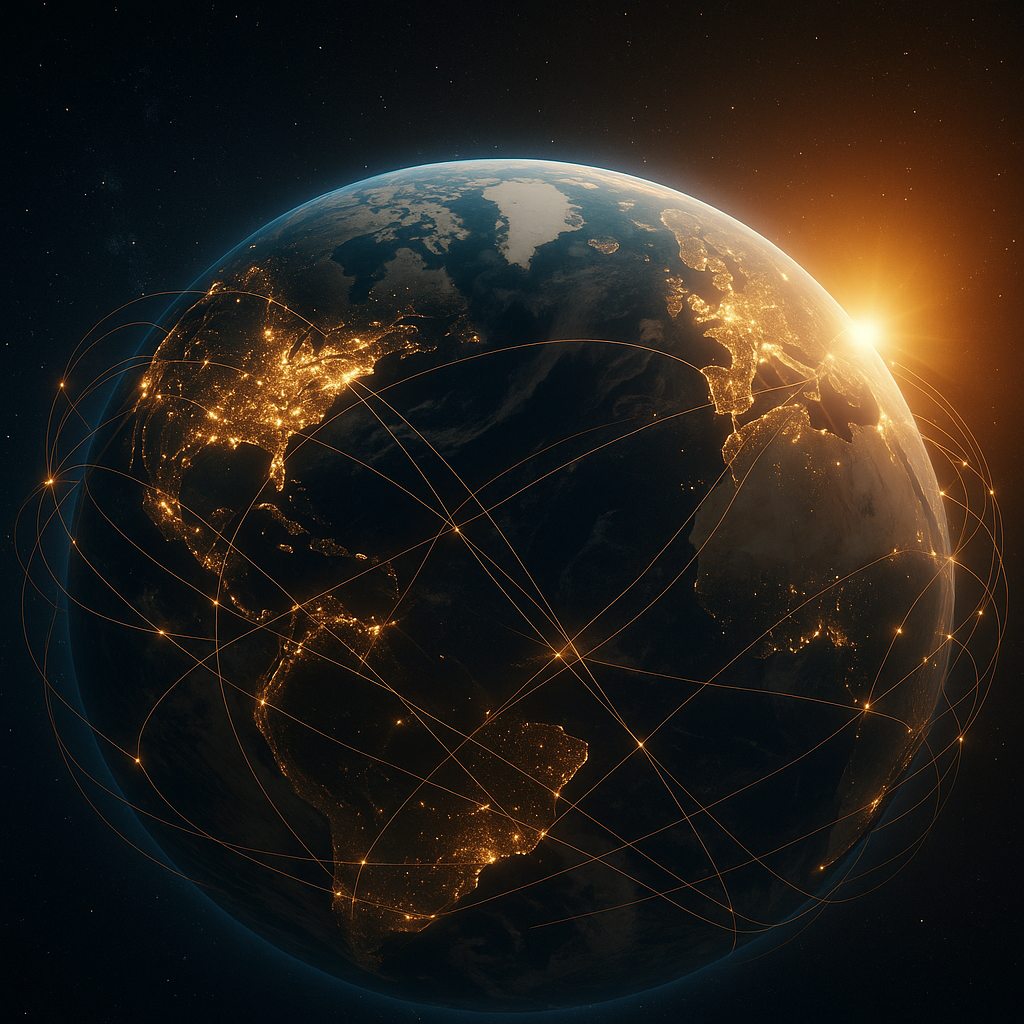“The moment you connected to the internet for the first time, you stepped into the largest gathering of human minds in history.”
The Dawn of a Digital Age
There was a time when knowledge moved at the speed of horses and ships. Letters crossed oceans in months, and news often reached you long after it had ceased to matter. Then, in the latter half of the 20th century, something began to stir in research labs — a quiet experiment linking computers together.
What started as ARPANET in 1969, connecting just four computers, became the spark of a revolution. Within a few decades, the internet would evolve into a living, breathing network of billions. And unlike other inventions, it wasn’t just built for governments or corporations — it was built for everyone.
The Infinite Library
Imagine walking into a library where every shelf stretches beyond the horizon, every book is updated in real time, and you can ask questions directly to the authors — even those long gone. That’s the internet.
It has given us instant access to human history, science, culture, and creativity. Whether it’s watching a craftsman in Japan forge a katana, learning astrophysics from a NASA livestream, or reading a 500-year-old manuscript scanned into an online archive — distance and time have lost their grip on information.
But perhaps the internet’s most revolutionary gift isn’t just the storage of knowledge — it’s the democratization of it. No longer is information locked behind borders, wealth, or privilege.
People, Not Just Packets
Beneath the layers of fiber optic cables and satellites lies something far more important: people.
A single post on social media can reach millions, spark revolutions, or raise life-saving funds in hours. Communities form around every interest imaginable — from climate activism to restoring vintage radios.
And in moments of crisis, whether it’s a natural disaster or a personal tragedy, the internet becomes a lifeline, connecting strangers who might otherwise never cross paths.
The Internet as an Economic Engine
The internet is the ultimate equalizer of opportunity. It has created an entirely new economy — one where a teenager in a remote village can sell art to someone in New York, or a small-town baker can reach thousands through Instagram reels.
Freelancing platforms, e-commerce marketplaces, online education portals — they’ve dismantled the walls of geography. The digital economy is expected to surpass $20 trillion in the next decade, and the barriers to entry are lower than ever.
The beauty? Success online often depends less on where you were born, and more on what you can create, solve, or inspire.
Hidden Gems of the Web (Agent: Hidden Gems)
The mainstream internet is loud, but tucked away in its corners are treasures most never see:
- The Wayback Machine – A time machine for websites.
- Citizen Science Platforms – Where amateurs help NASA classify exoplanets.
- Open Source Libraries – Millions of free tools for builders and dreamers.
These hidden spaces remind us that the internet isn’t just about consumption — it’s about contribution.
A Tapestry of Cultures (Agent: Cultural Connection)
The internet has become the largest cultural exchange in history. A recipe from Morocco can trend in Canada. A dance from South Korea can go viral in Brazil. And indigenous voices, once silenced by distance, now find global audiences.
This cultural blending is reshaping art, language, and even humor — where a meme can be understood by people who don’t share a common tongue.
The Curiosity Gap (Agent: Curiosity Gap Filler)
For all it has given us, the internet also leaves us with tantalizing questions:
- What untold stories are still hidden in obscure corners of the web?
- Will AI make the internet even more powerful, or too chaotic to trust?
- Could we one day connect every human on Earth?
These unanswered threads keep us exploring.
Challenges We Must Face
The internet is not without its shadows: misinformation, privacy invasions, and the growing digital divide are real threats. But every challenge also sparks innovation. Encryption, fact-checking initiatives, and community-driven moderation are already reshaping online trust.
The internet’s evolution will depend on us — not just as users, but as custodians.
Why It Matters
The internet is humanity’s most ambitious mirror. It reflects our kindness and cruelty, our brilliance and our mistakes. But it also connects us in ways no empire, religion, or invention ever has.
We are the stewards of this great web, tasked with deciding if it becomes a tool for unity or division.
The Future is Already Loading (Agent: Story Layering)
Somewhere right now, a child is coding the next breakthrough platform. A scientist is live-streaming a discovery that could save lives. A poet is sharing verses that will touch hearts across oceans.
And somewhere in the future, when historians write about the internet, they will say: It was the moment the human story truly became one story.
Conclusion: An Optimist’s View
The internet, for all its flaws, is the single most powerful amplifier of human potential we’ve ever known. It has given us not just connection, but the ability to create, share, and dream on a planetary scale.
And we’re just getting started.

